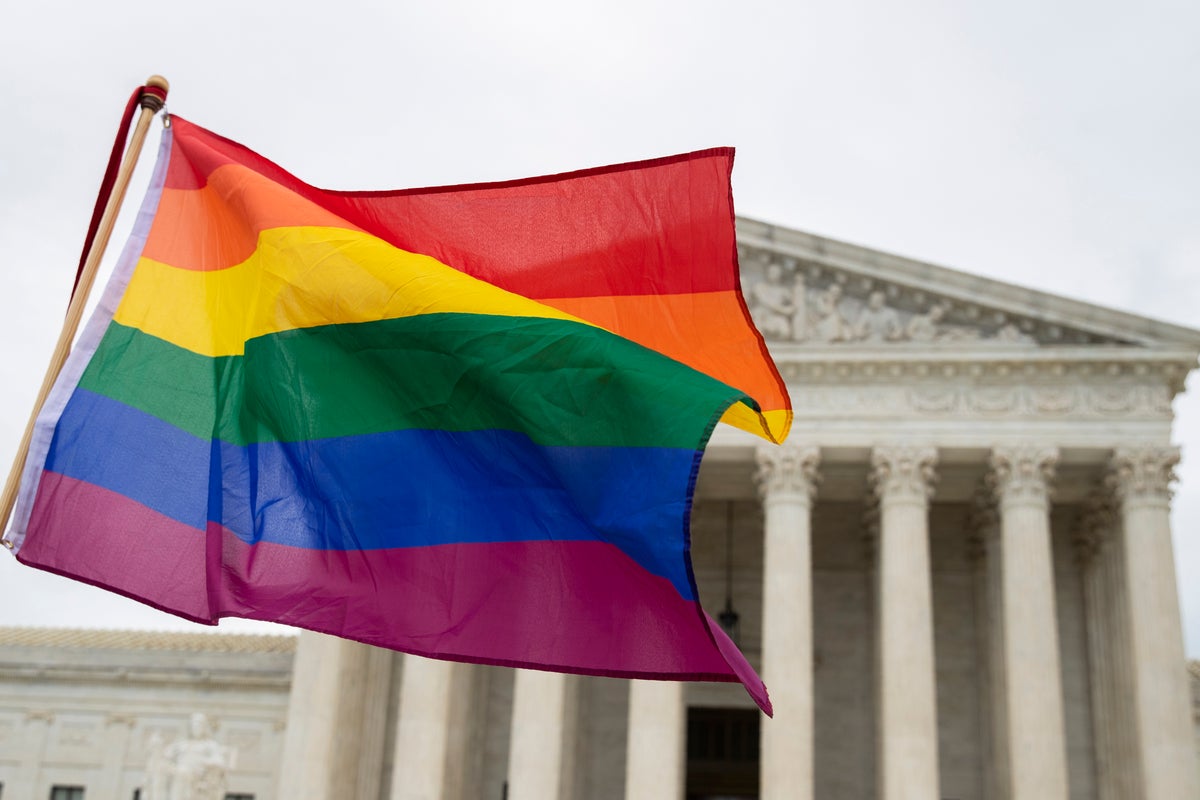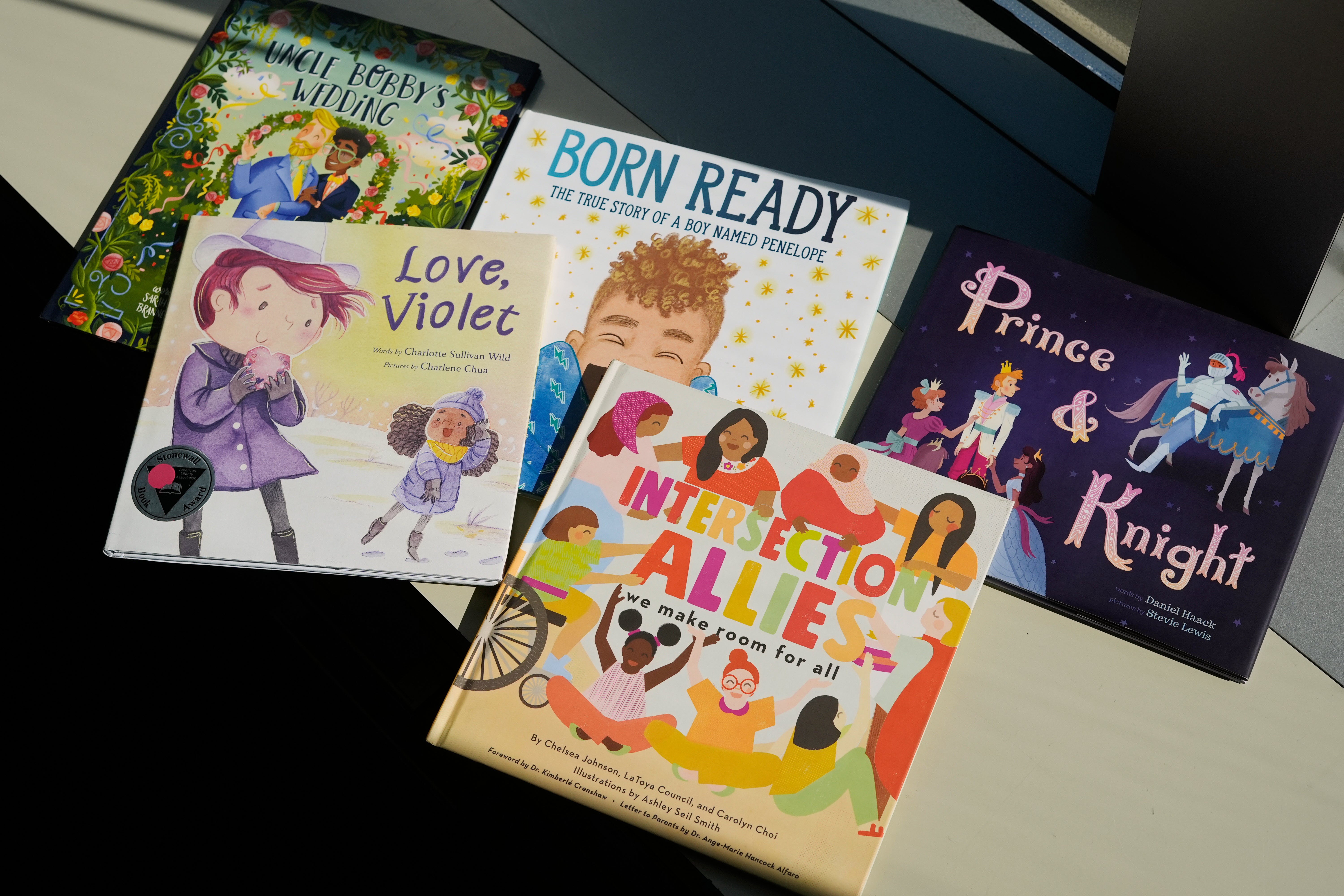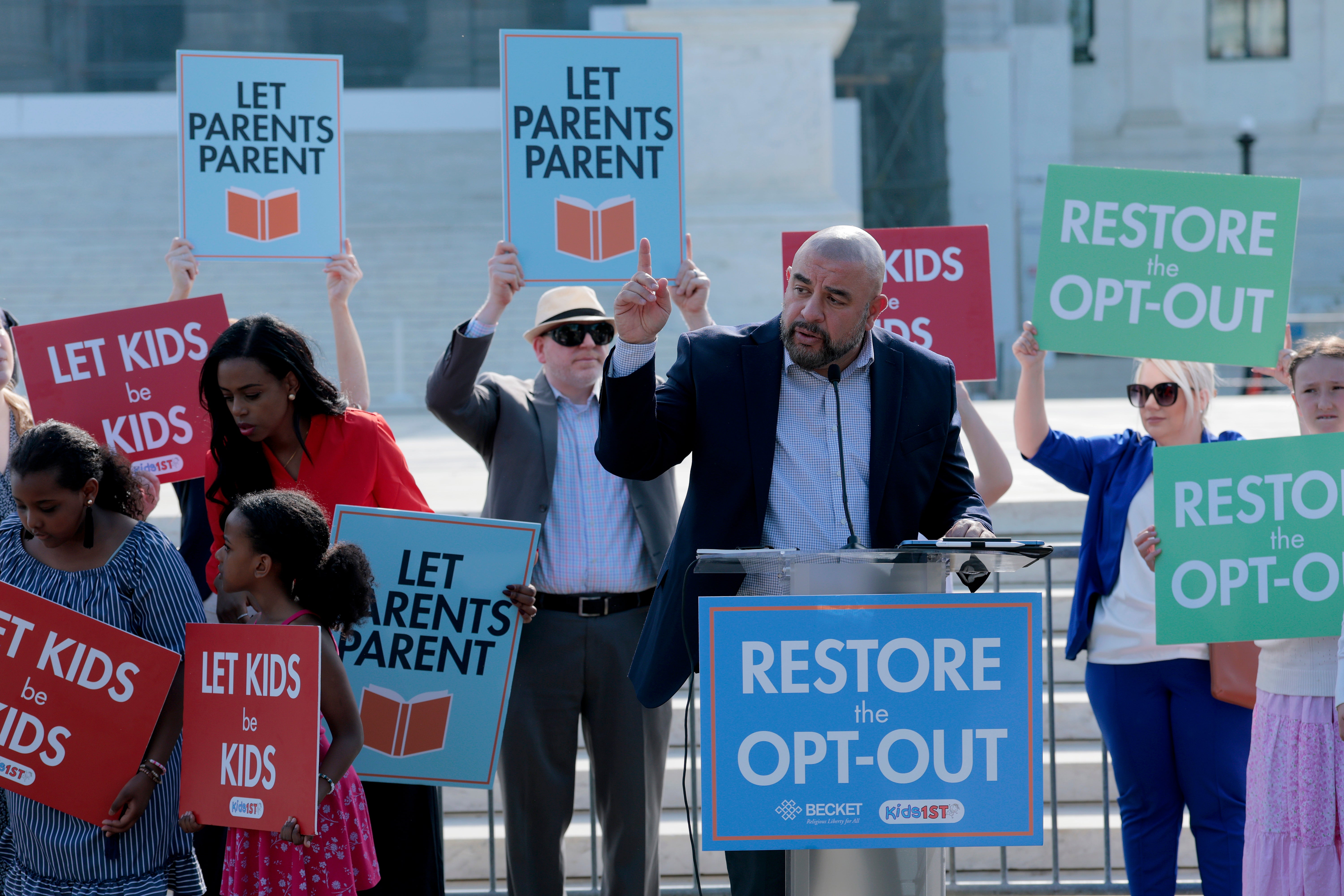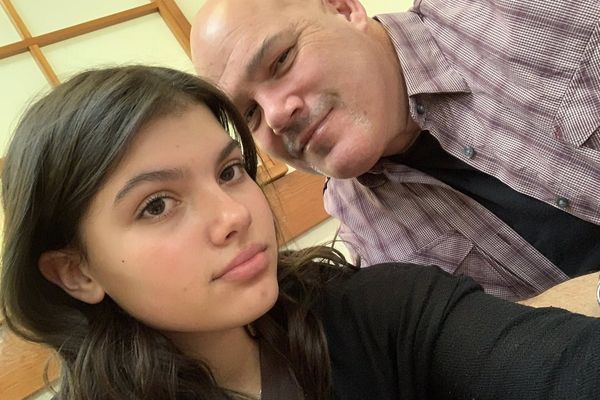
A group of religious parents who did not want their children to be read to or be exposed to LGBT+ inclusive books in school, may opt their children out of class, the U.S. Supreme Court ruled on Friday.
In a 6-3 ruling, the conservative wing of the court, which is often sympathetic to religious rights, sided with a group of parents in Maryland in a dispute over whether they could remove their children from classes that used books with LGBT+ themes or inclusivity.
The court said it was “the rights of parents” to bring their children up under a religious belief, even when those beliefs disagree with LGBT+ people or themes.
"We have long recognized the rights of parents to direct 'the religious upbringing' of their children. And we have held that those rights are violated by government policies that substantially interfere with the religious development of children,” Justice Samuel Alito wrote for the majority.
For now, those parents may remove their children from the class containing books they disagree with while litigation in the case moves forward.

At the center of the dispute are several books that contain LGBT+ characters or storylines included in an English language arts curriculum for elementary school-aged children in Montgomery County.
In 2022, the school board implemented the books into classrooms to better reflect the diverse community. Initially, parents could opt-out their children but the school board reversed the policy because, they said, it became too disruptive.
The books include Pride Puppy, which takes readers through the alphabet while sharing the story of a girl whose puppy gets loose while at a pride parade. Also, Uncle Bobby’s Wedding, a story about a girl who worries she will spend less time with her favorite uncle after he marries his boyfriend.
But a group of parents in Maryland, from various faith backgrounds, sued the county school board saying it went against their religious rights to remove the opt-out policy.
The liberal justices of the court, Justices Sonia Sotomayor, Elena Kagan, and Ketanji Brown Jackson, dissented from the majority, warning that such ruling will cause “chaos for this Nation’s public schools.”
“Requiring schools to provide advance notice and the chance to opt out of every lesson plan or story time that might implicate a parent’s religious beliefs will impose impossible administrative burdens on schools,” Sotomayor wrote for the majority.
She added, “The harm will not be borne by educators alone: Children will suffer too. Classroom disruptions and absences may well inflict long-lasting harm on students’ learning and development.”

The ruling is a small win for religious freedom advocates who have turned to the Supreme Court in recent years to expand their rights.
"Today's decision is a major victory for parental rights and for religious freedom,” Ashley McGuire, a mother in Montgomery County and senior fellow at The Catholic Association said in a statement. “Parents are the primary educators of their children, and they should get to decide when and how they broach sensitive topics about gender and sexuality, not the public school bureaucrats.”
Fatima Goss Graves, the CEO and president of the National Women’s Law Center rebuked the decision and in a statement that the court is opening the door for “extremists” to “undermine education.”
The impact of this decision cannot be overstated, as the door is now open for extremists to misuse religion and claim that it allows them to undermine education on any topic they don’t like, sowing fear and division in the classroom. Ultimately, this will make it harder for teachers to teach and students to feel seen and affirmed,” Graves said.
This case was Mahmoud v. Taylor.
Trump claims ‘GIANT WIN’ in ‘Birthright Citizenship Hoax’ after massive Supreme Court ruling
What's next for birthright citizenship after the Supreme Court's ruling
Justice Amy Coney Barrett rips Ketanji Brown Jackson over birthright dissent
Supreme Court curbs injunctions blocking Trump’s birthright citizenship ban







